This blog was written by Samuel Asare and Pauline Essah, Education Sub Saharan Africa (ESSA).
Even though research from Africa has increased over the last decade, it is still low compared to other regions. This can be attributed to several factors, including limited investment in research priorities and professional development of researchers in the region.
According to the World Health Organization (2020), 250 million children (43%) younger than five years in low-income and middle-income countries are at risk of not achieving their developmental potential. Similarly, UNESCO’s Global Education Monitoring Report (2023) showed that children living in Africa are five times less likely to reach the minimum level of proficiency in reading by the end of primary school, than children elsewhere. The vital role of research in advancing children’s physical, emotional and cognitive development is supported through national, regional and global policy documents
The three previous blogs in our series (see the end of this blog for the links) have shed light on early years research being conducted by Africa-based researchers – in particular, on early childhood development (ECD) and foundational learning (FL). The first blog in the series posits that locally published or unpublished African research exists but is largely invisible in international spaces and thus is maybe being excluded when developing international and local policies and development agendas. The second blog argues for greater investment, including by domestic institutions and governments, to prioritise and commit to funding evidence on ECD, particularly in under-researched areas. The third blog concludes that research in languages other than English should be further supported to ensure diversity and equitable participation.
In this fourth blog, we discuss research priorities and professional development needs of ECD and FL researchers in Africa. This is done by drawing on data collected from Africa-based researchers through an online survey, a webinar, online workshop presentations and small groups discussions, as well as consultations with experts. Through this blog, we will discuss what we learned from our engagements with the researchers.
What are the research priorities of ECD and FL researchers in Africa?
We learned that research priority themes cover a wide range of topics focusing on both ECD and FL, from different contexts across sub-Saharan Africa. As captured in our previous blogs, some research themes receive more attention than others.
Themes receiving more research
Examples of themes receiving comparatively more attention are parental involvement in children’s learning and wellbeing, and mother tongue instruction. Researchers acknowledge the importance of widening learning support beyond the school setting to include the home and community. For example, researchers are investigating how to better support families and communities as they nurture and care for children learning at an early age. In recent times, there has also been interest in the role of fathers in children’s early stimulation and care. Furthermore, the language used for instruction can promote or hinder learning. Therefore, researchers are investigating whether and how learning during the early years can be improved through teaching in the mother tongue/local languages, especially in rural areas and poor communities in urban areas.
Information and communication technology (ICT) is also receiving increased research focus, especially after COVID-19. For example, the research is addressing ways in which ICT can create opportunities for teaching and learning, as well as for managing information and data. There is also interest in identifying learning inequity and using ICT to potentially address that problem. For instance, there is research focusing on how learners from rural communities and low socio-economic backgrounds can benefit from opportunities provided through ICT.
Themes receiving less research
Aside from the research topics receiving more focus, we learned about some gaps in the research. Examples of these gaps are learning through play, children with disabilities, climate change, and child development. Play is identified as an important avenue to increase learning outcomes. To tap into the power of play, more research needs to be conducted, especially in low-resource contexts. Another research gap focuses on those addressing children with disabilities. More research is required for early identification and intervention, addressing cultural misconceptions, as well as a stronger focus on mental health and psychosocial support. The dangers of climate change, especially for young children, is also devastating. The effects of flooding, drought, poor hygiene, wildfires, etc, on children are widespread, and need urgent attention. To address this problem, we require multidisciplinary research, which seems limited in the region.
Similarly, we identified research gaps around clarity of ECD and FL concepts and, conflict and child development. The concepts of foundational learning and early childhood development are understood from Western perspectives. More research is required through an African lens to unpack their meanings, and how they are operationalised in the African context. Furthermore, researchers identified conflict as topic needing more research. For example, we need better understanding of how orphans and displaced children are meeting their developmental needs. What alternative provisions should be put in place to ensure they do not lag their safe counterparts in terms of development?
What are the professional development needs of ECD and FL researchers in Africa?
The previous section discussed some areas of ECD and FL research being conducted by Africa-based researchers and highlighted that some topics received more research than others. For researchers to continue to produce more high-quality research, their professional development needs should be addressed. Even though various stakeholders are making efforts to support researchers in the region, more can and needs to be done. Some of the needs requiring attention are presented below.
Access to resources
Research is driven by resources. Therefore, limited resources hamper quality research. A key concern of researchers is the (un)availability of funding to undertake research. There is limited funding from local sources and international funding is normally not accessible due to its competitiveness. Aside from the funding, other inputs such as access to peer-reviewed journals, stable internet and electricity, and computers, are often limited.
Research capacity
Having access to funding for research is good but without the skills to conduct high-quality research, not much will be achieved. Like researchers elsewhere, Africa-based researchers need ongoing professional development to strengthen their research capacity. Those in their early career stages may require the most support (e.g. through workshops and mentorship) to build their skills. In addition, learning about new methods and software for analysis are also necessary to be competitive.
Collaboration/partnership
Research collaboration can help to leverage expertise and resources to advance research production. It may also help to reduce duplication and build on existing knowledge. However, there is less collaboration among researchers from sub-Saharan Africa. These researchers and institutions most often work in isolation and sometimes in competition, instead of cooperation.
Research management support
Researchers in sub-Saharan Africa do not have adequate support from their institutions. For example, funding calls are not communicated on time to allow researchers to prepare quality proposals. Ideally, researchers should have information about funding at least six months ahead of submission to enable them to prepare quality proposal. Another area of concern is internal review processes which can be cumbersome and long.
Reduced workload
The high burden of administrative work, and teaching, compete with research. In the contexts of sub-Saharan Africa where student-teacher ratios tend to be high, the work demands become challenging. Attending to a high number of students and providing support means that academics have limited time to conduct high quality research.
Conclusion
Africa-based ECD and FL researchers are conducting high-quality research on various themes, with more focus on some topics than others. Stakeholders, including funders, policymakers, research institutions and the Africa-based researchers themselves, need to strengthen their collaborations to enhance research production for socio-economic development of the region. ESSA and the REAL Centre at the University of Cambridge are now building on insights from our engagements with researchers at a workshop in October 2023 in Nairobi. Key among the recommendations were a better collaboration and the breaking down of barriers between disciplines to enhance an interdisciplinary approach to problem-solving, and ensuring funders considering the African context in developing transparency and accountability benchmarks. We are capturing the potential solutions co-developed to address some of the needs identified. We can then provide concrete options for stakeholders to consider for supporting ECD and FL researchers in Africa.
——————————–
This is the fourth in a series of blogs related to increasing the visibility of African research through the collaboration between Education Sub Saharan Africa and the REAL Centre, to increase the visibility and use of research produced by Africans based in Africa, with a focus on early childhood development and foundational learning. See also the African Education Research Database.
The other blogs in the series are:
Prioritising early learning research in sub-Saharan Africa for equitable learning outcomes

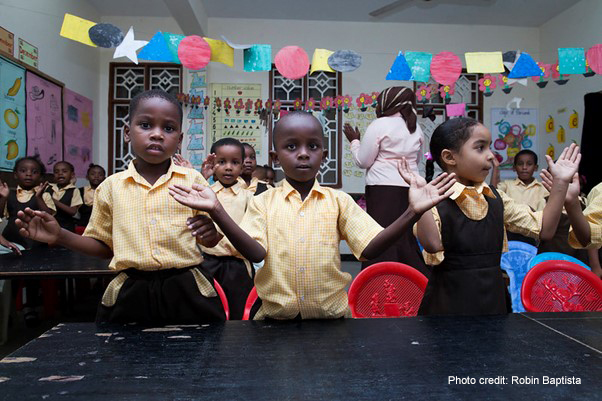
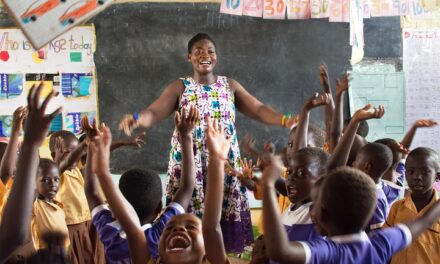
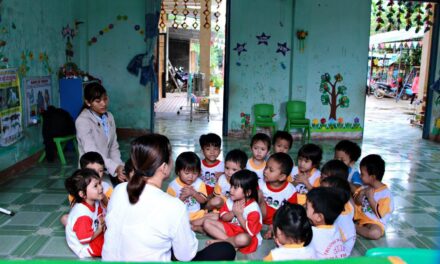
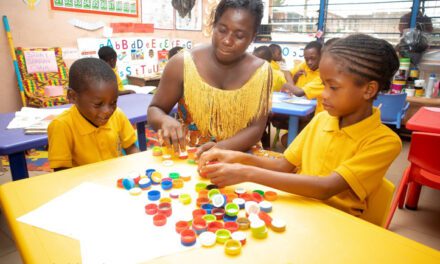
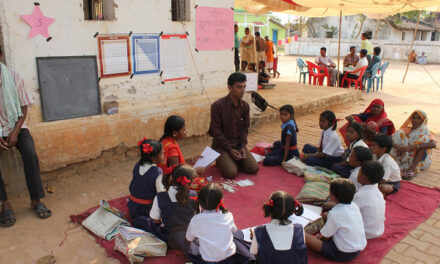
You are doing an incredible job. Our children’s well-being for African prosperity